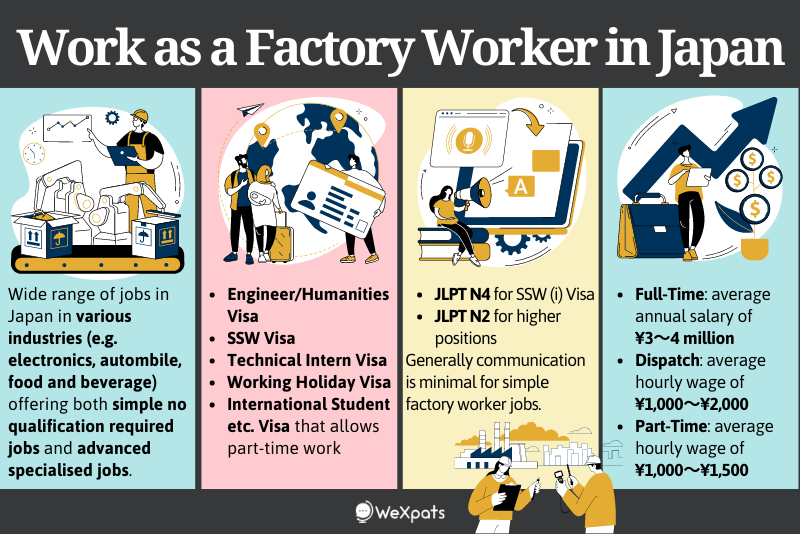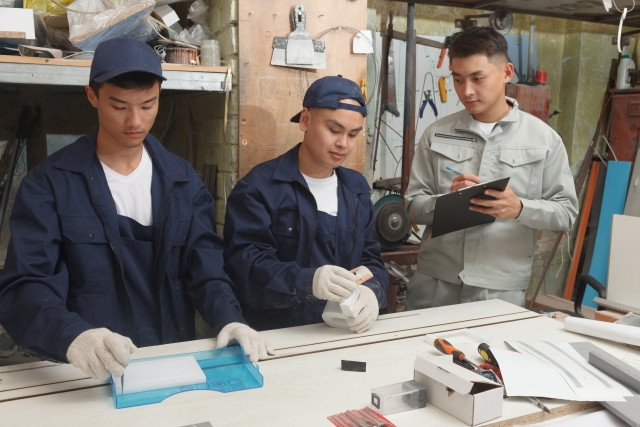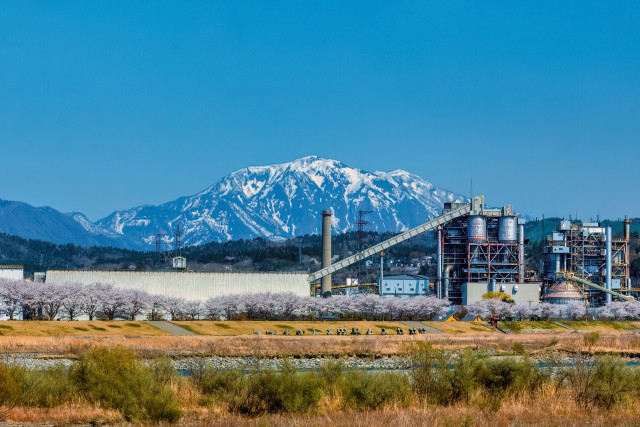Working as a factory worker in Japan comes with many benefits including competitive salaries, opportunities for career advancement, and great employee benefits. The high demand for factory workers in Japan also means that countless opportunities are available in a number of industries.
First Published: 2020-04-03
Updated: 2024-07-22
Table of Contents
- Wide Range of Factory Worker Jobs in Japan
- Benefits of Working as a Factory Worker in Japan
- Difficulties About Working as a Factory Worker in Japan
- Requirements of Factory Worker in Japan
- Factory Worker Salary in Japan
- Find Factory Worker Jobs in Japan with LGS
 Are you having any issues with job-hunting in Japan?
Are you having any issues with job-hunting in Japan?
Wide Range of Factory Worker Jobs in Japan

Japan offers a diverse array of factory worker jobs across various industries, each demanding unique skills and contributing to the nation's industrial prowess. From automotive assembly lines and electronics manufacturing to precision machinery and food processing, these roles span a wide spectrum of responsibilities and opportunities for career growth. Major industries in Japan that offer factory work include:
- Food and Beverage Manufacturing
- Electronics Manufacturing
- Automobile Manufacturing
- Pharmaceutical Manufacturing
- Steel and Metal Manufacturing
- Export Product Manufacturing
Below is an example of what type of jobs are available for factory workers in Japan.
Simple Jobs that Do Not Require Qualifications
- Line Work - The main type of work available for factory workers. It involves assembling products for mass production, what type of product depends on the factory. It is a simple routine job with tasks broken down into smaller steps which are easy to follow.
- Machinery Operator - Tasked with operating simple machinery according to provided manuals.
- Inspection - The task of checking assembled products for defects or cosmetic damages that cannot be detected by machinery. May require tools such as measuring instruments. It is an easy job that anyone with no prior experience can do.
- Labelling - An easy task of adhering labels or stickers to finished products. An easy job popular among part-timers. May be combined with sorting and packing work.
- Sorting & Packing - Sorting involves picking out specified products according to orders, while packing involves packing products for delivery.
- Disassembly & Recycling - A job that involves dismantling finished products, usually home appliances with many components that can be broken down for recycling purposes.
- Cleaning - Cleaning jobs in factories include not just cleaning of the premises but also machinery. Hygiene is particularly important in food and beverage manufacturing factories.

Jobs that Require Knowledge or Qualifications
- Quality Control - Focus on preventing defects and ensuring quality control of manufactured products. Qualifications may be required depending on the type of facility.
- Production Management - Taking care of factory inventory and overlooking the factory’s production progress to ensure products are produced according to order, up to quality standards, and delivered according to schedule. Specific production management and product management planning qualifications are available.
- Equipment Management - Maintenance and care of factory equipment such as conveyor belts for production lines, and production machinery. An important job that ensures the smooth operation of factory equipment and facilities. Qualifications for technician, electrician, etc. are necessary.
- Forklift Operator - Forklifts are common at factories for transporting and handling heavy packages. A forklift operator qualification is required to operate a forklift.
- Welding - Welders may be required depending on the factory. The necessary welding knowledge or qualification is required for these positions.
- Administration - Office work in factories that involve clerical tasks, document creation, data entry, and etc. management tasks. Bookkeeping qualifications are useful for this position.
- Engineering - Other engineering positions such as system engineer, electrical engineer, mechanical engineer, etc. may be available at factories.
- Research & Development - It is not uncommon for large factories to have R&D departments focus on developing new technologies and theories. Talented individuals with knowledge of science subjects are required for these positions.
Writer's Pick
Benefits of Working as a Factory Worker in Japan
There are many benefits that come with working as a factory worker in Japan.
Simple and Easy Work
Factory worker is a general term, there are actually many positions from simple tasks to special knowledge work at factories. For people who want to work a simple job to earn money, factory work is a suitable choice. There are also companies that will support you to obtain qualifications while working if you are interested to advance yourself further.
No Experience Positions Are Available
Finding a job with no work experience can be difficult with many job vacancies requiring some work experience, but this is not the case for factory work that has many positions that do not question your education background or prior work experience. It can be said that being a factory worker is one of the easiest entry jobs in Japan for gathering work experience.
Earn More with Night Shifts
Night shift work in Japan is usually rewarded with special allowances and higher salaries. There are factories that operate 24 hours offering night shift work with higher pay. Compared to regular office jobs, factory workers working night shifts can expect to earn more.
Employee Benefits that Help You Save Money
Many factories offer employee dormitories for free or for a low rental fee that significantly saves housing costs. Some factories also have employee cafeteria facilities or offer food subsidies so you can save on food costs.
Easy to Take Holidays
These days, It is apparently easy for factory workers to take holidays (even on weekdays) due to work style reforms at factories to encourage workers to work longer. It may be difficult to take leave during business periods, but generally you can take time off whenever you want.
Minimum Communication
Factory work usually requires minimal communication with your coworkers. It is a job where you can focus on your own task and work in silence. There are times when you have no choice but to communicate with your coworkers and superior, but most of the time it involves concentrating on your own work. It is a fitting job for those who are worried about their Japanese abilities or do not enjoy communicating.
Difficulties About Working as a Factory Worker in Japan

On the other hand, there are also some concerns when it comes to working as a factory worker in Japan.
Factory Work Requires Physical Strength
Factory work is mostly a standing job and may require lots of walking around the factory. Those who are not confident in their physical abilities may find it difficult to get used to.
Factory Work Requires Speed and Accuracy
Dextrous hands are required for factory work. People who can work fast and accurately are favoured as factory workers. Being slow can affect productivity and slow down the whole team, which may lead to stress and feeling like a burden. However, factory work can be simple tasks depending on your position, so you will gradually get used to it and speed up with repetitive practice.
Factory Work Can be Boring
Depending on your assignment, factory work can be repetitive simple tasks and thus boring. Some people enjoy this and find it easy to concentrate on simple tasks, while others may want something more challenging and find it tiresome to repeat the same thing every day.
Factory Work Can be Risky
Factory work may come with risks of accidents and injuries. Many tasks require physical strength such as standing for long periods of time and carrying heavy objects which may cause long-term strain on the body. Be careful to take breaks and rest to avoid injury caused by carelessness or fatigue.
Requirements of Factory Worker in Japan

Factory Worker Visa in Japan
The type of work visa (status of residence) depends on the nature of your job and position at the factory. For example, simple factory work that does not require qualifications and education background would fall under the work visa category of Specified Skilled Worker (SSW) or Technical Intern.
Whereas, for advanced knowledge and expertise positions, such as engineering, quality control, and office administration. The Engineer / Specialist in Humanities / International Services work visa category would apply.
Language Skills
What level of Japanese language proficiency is required depends on your job scope in the factory, and also your work visa (status of residence).
Though simple factory worker jobs do not need high levels of Japanese proficiency and have minimal need for communication, a certain level of Japanese proficiency is required for obtaining a work visa. For example, the SSW (i) status of residence requires passing a Japanese proficiency test at around JLPT N4 level.
As for factory positions that require a Engineer / Specialist in Humanities / International Services work visa, a higher level of Japanese proficiency is expected. Minimum JLPT N2 is highly recommended for more job opportunities.
Factory Worker Salary in Japan

- Full-Time - The average salary for full-time factory workers is 3~4 million yen a year, inclusive of bonus and allowances. For full-time managerial positions, it is possible to earn an annual salary of 6~8 million yen a year.
- Dispatch Worker - The average hourly wage for dispatch factory workers ranges from 1,000~2,000 yen an hour depending on location. Dispatch workers do not receive bonuses, so their average annual salary is around the range of 3 million yen.
- Part-Time - The average hourly wage for part-time factory workers is 1,000~1,500 yen an hour depending on location. Many of these positions are simple factory work for non-experienced people.
Factors that affect a factory worker’s salary include workplace, position, and allowances (e.g. night pay). For those interested to earn more, aim for night shifts for extra pay.
Find Factory Worker Jobs in Japan with LGS

Leverages Global Support is a career support service that introduces jobs that require specific skills to specified skilled workers.
We also help with all the procedures required for employment and job changes, such as change of status of residence (visa type) and interview practice. If you have any problems after starting work, please feel free to contact us as well.
If you would like to know more about specified skilled workers and specific skills, please read this article, or contact a career advisor.
Recommended For
- Specified Skilled Workers who are thinking about changing jobs
- Technical Interns who want to switch to becoming a Specified Skilled Worker (You can try working in a new industry even with no experience!)
- International Students who have graduated from a Japanese school but are having trouble finding a job
How to Use Leverages Global Support
Ask for Job Recommendations
A career advisor will support you with your job search based on your desires. If you would like to be introduced to a specific skill job, feel free to send us a message using the link below.
Mention “WeXpatsを見た” at the beginning of your message, and our staff will respond promptly.
※ A Facebook account is required. Responses will be in Japanese.
Browse Jobs Yourself
You can search for the perfect job by specifying your Japanese level, occupation, work location, etc. We have many jobs available not only for Specified Skilled Workers, but also for Engineer / Specialist in Humanities / International Services.
※ You can register from outside Japan, but only those living in Japan can apply for jobs.


































